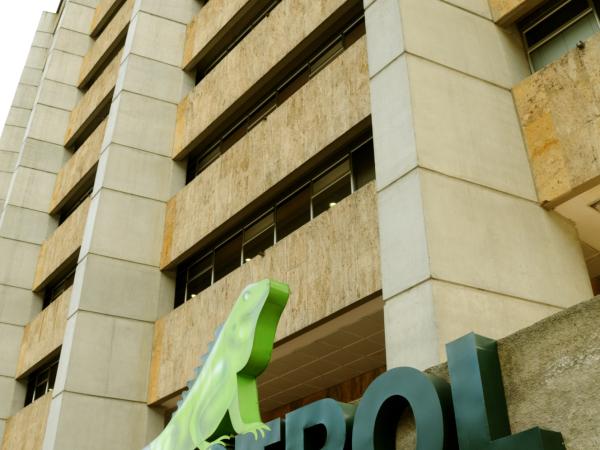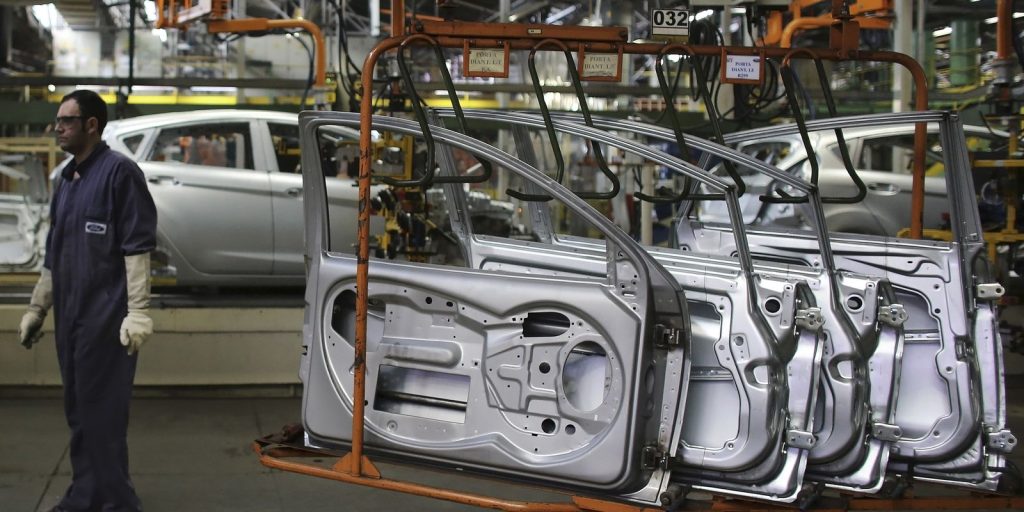After months of negotiations for Ecopetrol to buy a part of CrownRock’s assets in the United States, as part of a deal with Oxy, The business suffered a sudden ‘setback’ a few days ago, despite the fact that could have supported the company’s operational and financial indicators.
(We suggest: Ecopetrol’s ‘harakiri’ and how some decisions would impact public assets)
The business, which was called ‘Project Oslo’, would allow Ecopetrol acquired 30% of this company for around US$3.6 billionThis would have a significant impact on the hydrocarbon company’s proven reserves and its financial results.
However, Oxy CEO Vicki Hollub said Colombian President Gustavo Petro put the brakes on negotiationsThe American company intended to completely buy this company, but as part of the joint venture signed between the companies, Ecopetrol has the right to a stake of up to 49% of the acquisitions made by the US oil company in a certain area and vice versa.
“We worked on that deal from March until last week, and we thought we were done, But President Petro of Colombia did not approve it”Vicki Hollub said on a conference call with investors.
(Read also: Energy recovery plan does not include hydrocarbons)
Portafolio learned that the analysis carried out by the Colombian company showed that This business would allow it to increase its oil production by 9%, while another 9% in reserves and 6% in EBITDA (earnings before taxes, depreciation and amortization). This had led the board of directors to approve the plan to make the proposal to Oxy in May.
And it is that the Both operational and financial indicators showed improvements with the entry into these assets. In fact, the plan was at such an advanced stage that it had already proposed a financing scheme for this transaction and only a few approvals were missing.
Oxy’s CEO explained that “we wanted it, but they (Ecopetrol) also wanted to be part of it. They saw the assets. They knew they were high-quality assets,” referring to CrownRock’s business.
For the CEO of OXY, it is clear that the deal was not closed by decision of President Gustavo Petro, who has been a staunch opponent of fracking and that is why his government has attempted to ban this technique, although the bill for this purpose did not advance in the last legislature.
“He (President Petro) has made it very clear to the world that he is anti-oil, anti-gas, anti-fracking and anti-United States.. And with those three attacks, he practically removed Ecopetrol from the agreement,” Vicki Hollub noted.
And he added: “Unfortunately, there are others in the world like Petro. And there are some, in fact, in the United States like Petro, who believe that oil and gas should go away and believe that we should no longer be an industry and that renewable energy will be all that is needed to move forward and help with the climate transition.”
In fact, a The oil company document, dated July, showed that “All the required prior instances have been completed to submit for approval by the Board of Directors of Ecopetrol, in its capacity as strategic advisor, the implementation of the new Oslo business and the signing of definitive contractual documents”.
(Recommended: Without the Venezuela option and with new regulations, the Government will face the gas deficit)
Ricardo Roa Barragan, President of Ecopetrol
Nestor Gomez / Portfolio
Advances made up to that point included processes of technical and financial assurance; approval, at the subsidiary levelof the Board of Directors of Ecopetrol USA, direct shareholder of the Permian stake; favorable recommendation of the Investment Committee; favorable recommendation of the Business Committee of the Board of Directors; and favorable recommendation from the Audit Committee of the Board of Directors regarding the financing required to carry out the transaction.
In fact, the recommendation of the company’s highest corporate body was to move forward.Taking into account the Positive impact of the Oslo Project for Ecopetrol, achievable in a time window in which there is no other project that offers these benefits within the current portfolioin terms of increases in reserves, production, Ebitda, as well as other operational and sustainability metrics, together with the viability of financing the acquisition via additional debt, sand recommends carrying out this business”.
(In context: Ecopetrol backs off buying assets in US fracking project)
Corporate governance?
Portafolio learned from sources familiar with the matter that there is a feeling of unease within the board of directors of Ecopetrol which some members of the company’s highest decision-making body consider to be “manipulation” by the senior government of the decisions taken.
This occurred after Ecopetrol publicly informed the market, through relevant information sent to the Financial Superintendence, that it was interested in making this strategic purchase, but then the market was surprised by the withdrawal of its intention.
According to sources, Even though the company’s highest authority considered the business viablewhich would not only be a help for the oil company’s coffers but also an important support for the government’s ailing finances (via dividends and taxes that would generate income from the Oslo project), Both the Minister of Finance, Ricardo Bonilla, and President Petro, said no to moving forward on this issue, without any explanation, and bypassing corporate governance.
(Read also: Ecopetrol seeks to increase its commitment to fracking in the US with a new acquisition)
“They were left stunned“, said a source consulted. Other experts on the subject point out that It is striking that the high government interferes in the decisions, especially when they have high projections of short-term profitability and income for the oil company that have positive fiscal effects.
These were the business projections
The Ecopetrol document, which analyzed the operational and financial implications of the failed Oxy deal, showed that the acquisition would have increased oil production by 65,000 barrels per day in 2025 before royalties, equivalent to about 9% of the current level at which the majority state-owned company is extracting.
Similarly, it was estimated that without the Oslo project, the company’s proven reserves for 2024 would be located at 1,743 million barrels equivalent (crude oil and gas), a figure that with the rejected project would have increased by 212 million barrels equivalent, while the reserve replacement index would go from 126% to 129%.
As for Ebitda, the document seen by Portafolio also reveals that, depending on the price scenario, this year’s closing is expected to be between 46 billion pesos and 50 billion pesos, a value that with the Oslo project would have grown between 2.7 billion and 3.1 billion pesos, while for the company’s profits the expected effect was greater.
Thus, Ecopetrol’s internal analysis showed that without the business with Oxy, the estimated range of profits for the company in 2023 is between 9 billion pesos and 12 billion pesos, a figure that would rise between 1.3 billion pesos and 1.6 billion pesos, around 14% more.
In the meantime, the transaction was expected to be financed in full through debt, from three sources: a letter of commitment with the conditions of a bridge loan with Citibank and JP Morgan Chase, prior to the signing of the investment commitment; the disbursement of a short-term bridge loan for two years, subject to the approval of the Ministry of Finance; and a refinancing of the long-term debt of Ecopetrol, Ecopetrol United States and/or subsidiaries or affiliates.
The financial mechanism even contemplated that, in order to reduce the level of consolidated financial leverage, alternatives would be considered for re-evaluating to free up resources and reduce indebtedness, one of these options being the divestment of businesses by the Ecopetrol Group.
Daniela Morales Soler
OMAR G. AHUMADA ROJAS
Portfolio

















